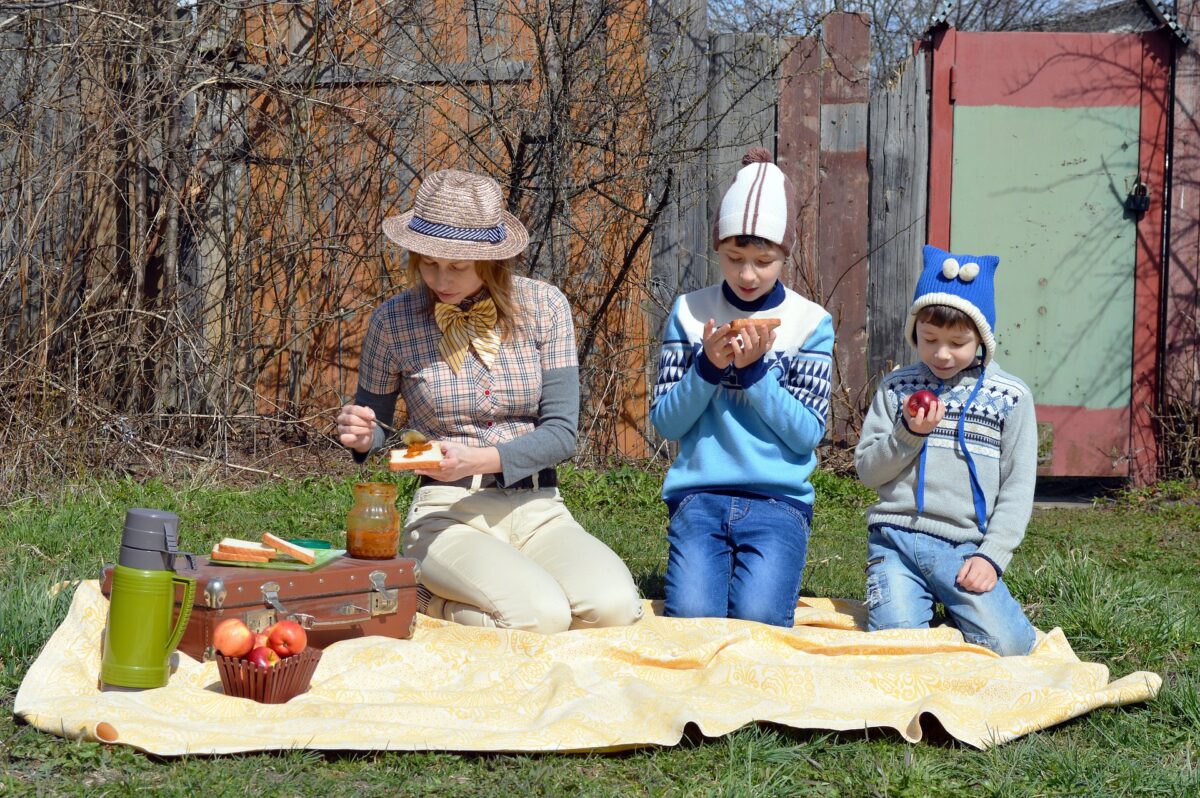Iron is an essential mineral that plays a vital role in the body. It’s an essential component in the production of red blood cells that carry oxygen to various parts of the body. Iron deficiency is a common nutritional deficiency that affects millions of people worldwide, particularly women. In this comprehensive guide, we’ll discuss everything to know about iron deficiency, including its signs, symptoms, causes, and treatment.

Signs and Symptoms
Some of the signs and symptoms of iron deficiency include:
1. Fatigue
2. Dizziness and lightheadedness
3. Shortness of breath
4. Cold hands and feet
5. Pale skin color
6. Fast or irregular heartbeat
7. Brittle nails
8. Cravings for non-nutritive substances, such as dirt or ice (pica)
9. Headache, leg cramps, restless legs or tingling in the legs
10. Poor appetite

Causes
Iron deficiency is a common nutritional disorder that can occur due to various factors, including inadequate dietary intake, increased iron losses, malabsorption, and increased iron demand. Here are some real-world examples of how lifestyle factors and disease states can lead to iron deficiency:
-
Inadequate dietary intake: A diet lacking in iron-rich foods can often lead to iron deficiency. This is particularly true for vegetarians and vegans who may not consume enough iron-rich plant-based foods. Also, infants and young children who are not receiving adequate iron through their diet may develop iron deficiency.
-
Increased iron losses due to bleeding: Women are more susceptible to iron deficiency due to menstrual blood loss, which can result in a loss of 30-40 milliliters of blood per cycle, leading to iron depletion and anemia if not compensated by adequate iron intake.
-
Malabsorption: Certain medical conditions such as celiac disease, inflammatory bowel disease, and gastric bypass surgery can interfere with the absorption of iron from food, leading to iron deficiency.
-
Increased iron demand during pregnancy: Pregnant women require higher levels of iron to support the growth and development of the fetus. Failure to meet these demands can lead to iron deficiency and anemia in pregnant women.
-
Blood loss due to injury or surgery: Blood loss due to injury or surgery can lead to iron deficiency anemia, especially if the individual has inadequate iron stores.
Treatment
Treatment for iron deficiency includes dietary changes and iron supplements. Iron-rich foods include lean meat, seafood, fortified cereals, and leafy green vegetables. Iron supplements can help increase iron levels in the body. However, it is important to consult a healthcare provider, as excessive iron intake can be harmful. Occasionally, sever iron deficiency may require an intravenous infusion.
There are many different iron supplements to choose from. Guidance under a Naturopathic Doctor or Nutritionist can help direct an informed decision. In my experience a heme iron polypeptide is best tolerated.

Prevention
The best way to prevent iron deficiency is by consuming an adequate amount of iron-rich foods. Some iron-rich foods include lean meats, fish, eggs, fortified cereals, beans, lentils, tofu, and nuts. It is important to include these foods in one’s diet to maintain healthy iron levels in the body.
According to the Centers for Disease Control and Prevention (CDC), the recommended daily allowance of iron for women aged 19-50 is 18 milligrams per day. During pregnancy, the recommended daily allowance increases to 27 milligrams. It is important to note that too much iron can also be harmful, so it is essential to consult a healthcare provider before taking any iron supplements.
Another way to increase the absorption of iron in the body is by consuming vitamin-C rich foods, such as citrus fruits, berries, kiwi, and tomatoes. Vitamin C enhances the absorption of non-heme iron, which is the type of iron found in plant-based foods and no heme based iron supplements.
It is also a good idea to have iron levels checked regularly by your physician or naturopath. This is especially important for women during their menstrual years.

Conclusion
Iron deficiency can be a serious condition, but it’s preventable and treatable. Have your iron level checked regularly and If you experience any signs of iron deficiency, it is important to seek medical attention. You can increase your iron levels through dietary changes and iron supplements. Understanding the importance of iron in our body is vital, particularly for women who are more susceptible to iron deficiency. By raising awareness about iron deficiency, we can safeguard our health and improve our quality of life.
References:
More and more families are choosing to adopt a vegan or vegetarian diet. According to a recent study published by the Academy of Nutrition and Dietetics, plant-based diets can meet all nutritional needs for infants and children. However, parents must be mindful about the potential nutritional deficiencies that may arise with these diets. In this blog post, I will discuss the most common nutrient deficiencies that vegan and vegetarian kids might experience and provide tips on how to ensure they get enough nutrients.
1. Vitamin B12
Vegan and vegetarian diets are often low in Vitamin B12 since it is most commonly found in animal products. This nutrient is necessary for healthy brain function, red blood cell production, and DNA synthesis. Fortunately, several vegan sources of B12 are available, including fortified foods such as plant-based milks, cereals, and nutritional yeast. Parents can also give their kids a B12 supplement or buy a vegan B12 supplement spray.
Some common symptoms of B12 deficiency in kids include:
-
Delayed development
-
Weakness and fatigue
-
Pale skin
-
Poor appetite
-
Numbness or tingling in hands and feet
-
Difficulty walking and balancing
-
Behavioral changes
-
Cognitive difficulties
-
Mouth ulcers or sores
-
Anemia (low red blood cell count)
Recommendation: Active Chewable B12 from Genestra provides 1mg of Methyl-B12 in a cherry flavored chewable tablet. It is vegan, gluten, dairy and soy free.

2. Iron
Iron is essential for the production of hemoglobin, a protein in red blood cells responsible for carrying oxygen throughout the body. Iron deficiency is common in vegan and vegetarian kids because plant-based sources of iron (such as beans, lentils, and leafy greens) are not as easily absorbed as animal-derived iron. To increase iron absorption, parents should pair iron-rich foods with vitamin C foods such as citrus fruits. When iron deficiency is present it can be difficult to raise levels sufficiently with diet alone. Iron supplementation can be useful, however, it is important to do so under the care of a family physician or naturopathic doctor. Too much iron can be as problematic as too little.
Some common symptoms of iron deficiency in kids include:
-
Pale skin or lips
-
Fatigue or weakness
-
Irritability or fussiness
-
Poor appetite
-
Decreased growth and development
-
Increased infections
-
Difficulty concentrating
-
Cold hands and feet
-
Brittle nails
-
Headaches
Recommendation: Floradix Liquid Iron is a great tasting vegetarian friendly iron supplement with synergistic B-vitamins.

3. Protein
Many people wonder whether a vegan diet can provide adequate protein for growing kids. The answer is undoubtedly yes! Plants like beans, lentils, tofu, and quinoa pack significant protein. However, it is essential to combine these protein sources with whole grains to create complete protein. It is also okay to offer plant-based protein sources throughout the day and not all at once. Edamame, nut butter, and vegan protein shakes are excellent options. Check out my article on Nutritional Requirements for kids to gain an idea of how much protein your child requires. If a protein deficiency in suspected, using a protein supplement can be an easy way to boost your child’s daily protein consumption.
Some signs and symptoms of protein deficiency in kids include:
-
Edema or swelling in the feet, hands, or belly
-
Slow growth or failure to thrive
-
Loss of muscle mass
-
Delayed wound healing
-
Weak or brittle hair and nails
-
Loss of appetite or difficulty eating
-
Irritability or mood changes
-
Lowered immunity, leading to increased infections

4. Calcium
Calcium is critical for strong bones, muscles, and teeth. While dairy products are the most common source of calcium, vegan kids can get enough calcium from plant-based sources like fortified non-dairy milk, broccoli, bok choy, and kale. Parents can also offer vegan calcium supplements.
Some common signs and symptoms of calcium deficiency in kids include:
-
Delayed development and growth
-
Weak bones that are prone to fractures
-
Muscle cramps and spasms
-
Numbness and tingling in the fingers, toes, or face
-
Weak and brittle nails
-
Tooth decay and other dental problems
-
Fatigue or lethargy
-
Difficulty sleeping
-
Irritability or mood changes
-
Loss of appetite
Recommendation: Calcium Kids Chewable tablets from Progressive Nutritional’s provides calcium and other micronutrients in a great tasting sugar free and vegetarian format.

5. Zinc
Zinc is essential for growth and development, immune system function, and wound healing. Zinc can be found in nuts, seeds, and legumes, and fortified cereals. Parents could also offer vegan supplements to ensure adequate zinc intake. it is important to note that long term zinc supplementation can cause copper deficiency. Therefore, it is important to supplement under the supervision of a physician, nutritionist or naturopathic doctor.
Some common signs and symptoms of zinc deficiency in kids include:
-
Delayed growth and development
-
Poor appetite and weight loss
-
Delayed wound healing
-
Diarrhea and other digestive issues
-
Increased infections
-
Skin rash or dry skin
-
Weakness and fatigue
-
Hair loss
-
Difficulty concentrating or memory problems
-
Mood changes, such as irritability or depression
Recommendation: Kids Liquid Zinc with Vitamin C from Organika is a product I have used with many patients. It provides 3.5mg of zinc with 200mg of vitamin C in a great tasting easy to use liquid format.

Conclusion:
If done right, a vegan or vegetarian diet can provide all the nutrients necessary for growing kids. However, it is essential to be mindful of potential nutrient deficiencies and incorporate nutrient-rich, plant-based foods into meals. If parents choose to offer supplements, it is best to talk to a healthcare professional first. With the right approach, vegan and vegetarian diets can be healthy and satisfying for kids.




